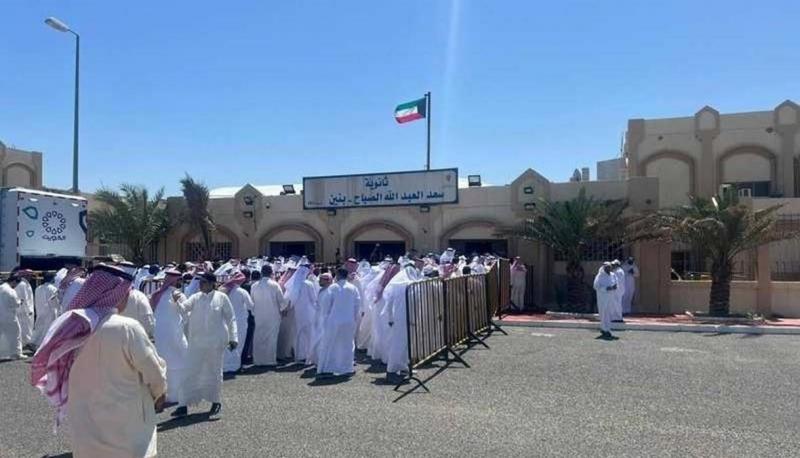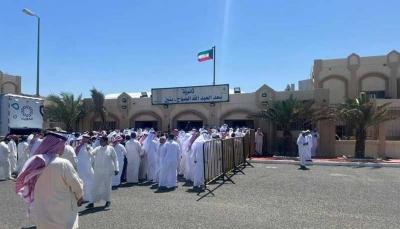Kuwaiti voters began casting their votes today, Thursday, in the fourth parliamentary elections since December 2020, and the first after Sheikh Mishal Al-Ahmad Al-Jaber Al-Sabah assumed power as the emir of the country at the end of last year. A total of 200 candidates are competing in today's elections, the lowest number in over five decades, while the number of voters is approximately 835,000.
The elections are conducted under judicial supervision and according to the one-vote system, which means each voter has the right to cast their vote for only one candidate. The voting process takes place in a single day from 12 PM to 12 PM. Kuwait consists of five electoral districts, each district electing ten representatives, with the candidates who secure the top ten positions in each district winning parliamentary membership.
Expectations indicate that economic reforms will be a top priority following the stagnation of many decisions in the oil-producing country due to long-standing disputes between appointed governments and elected parliaments. The emir of Kuwait strongly criticized the National Assembly and the government in his first speech to parliament after taking the oath of office on December 20, claiming it caused "harm to the interests of the country and the citizens."
This approach, which focuses on reform with little tolerance for political disputes, seems aimed at pushing the small Gulf state, a member of OPEC, which has lagged behind its regional neighbors in development, to achieve ambitious reforms to reduce its economy's dependence on oil. Decades-long tensions between appointed governments and elected parliaments have hindered financial reform in Kuwait, including the passage of a debt law that would allow Kuwait to access international markets and lessen its significant reliance on oil revenues.
Kuwait seeks to advance economic reform plans that include diversifying the economy, attracting foreign investors, and encouraging the private sector. Sheikh Mishal, 83 years old, succeeded his late brother Sheikh Nawaf Al-Ahmad in December and dissolved parliament on February 15, less than two months after taking office. The emirate decree to dissolve the council was based on "the violations by the National Assembly of constitutional principles in showing the necessary respect for the high office and the deliberate use of inappropriate, unregulated language."
Although the emir has the final say in Kuwaiti politics, the legislative council enjoys significant influence compared to similar councils in neighboring Gulf states; however, political stagnation has led to ongoing changes in ministerial formations and the dissolution of parliaments. Sheikh Ahmed Nawaf's government resigned hours after the emir's speech on December 20, leading Sheikh Mohammed Sabah Al-Salem Al-Sabah to form a new government featuring new ministers for oil, finance, foreign affairs, interior, and defense.
Kuwait was in the global spotlight when it was invaded by former Iraqi President Saddam Hussein in August 1990, before being liberated through a military coalition led by the United States. Since the U.S. invasion of Iraq in 2003 and Washington's calls for change in the Middle East, the ruling family has faced pressure from Islamists and liberals to relax its grip and expand power-sharing.
Kuwait prohibits political parties, and candidates run for elections as independents, but the parliament holds significant powers, including the right to question the Prime Minister and ministers, as well as to approve, reject, or annul laws. While these powers provide the country with a degree of democracy, they also open the door to political paralysis and hinder decision-making.




